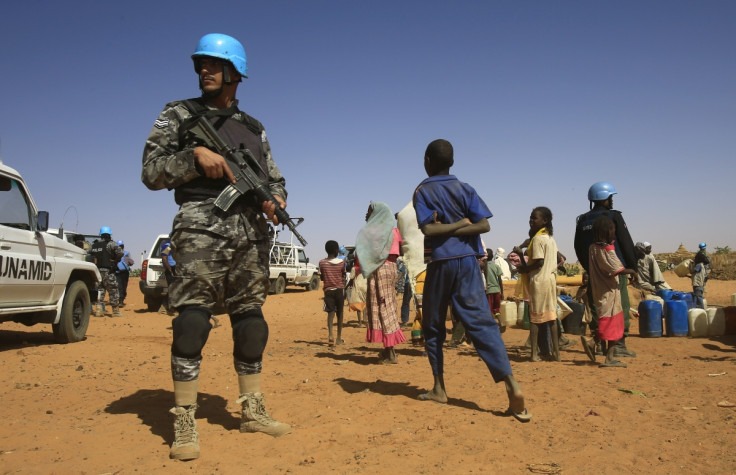Fighting resumes in Sudan's Darfur region after months of calm
Violence continues in Darfur, in spite of 2010 peace deal to end war that killed some 300,000 people.

Concern is growing as fighting resumes in Sudan's troubled region of Darfur following months of calm. Violence erupted between Sudanese forces and the rebel group Sudan Liberation Movement/Army (SLM/A) on 20 May.
Khartoum said rebels returning from Libya and South Sudan clashed with government forces in East and North Darfur states, according to AFP.
European Union embassies in Khartoum, as well as the so-called "Sudan troika" ( US, Britain and Norway) , called on all parties to end the violence.
"We call on all parties to show restraint, cease all military actions, return to the unilaterally proclaimed ceasefires and finalise as soon as possible a joint cessation of hostilities agreement," read the joint statement.
"The Embassies of the Troika and the EU urge all parties to cooperate fully with the UN-AU Hybrid Mission in Darfur (UNAMID) as it seeks to carry out its monitoring and protection of civilians mandate. There is no military solution to Sudan's conflicts, which have only resulted in devastation for civilian populations," the statement continued.
Read also: Third Sudanese Civil War - SPLM-N 'fights for secularism' in South Kordofan and Blue Nile
The Darfur civil war started in February 2003. It pitted SLM/A and Justice and Equality Movement (JEM) rebel groups against Sudanese government, accusing it of marginalising the non-Arab/African tribal population in the region.
The government responded with a crackdown on protesters and government-linked militia killed hundreds of thousands of civilians.
The UN estimated that between 200,000 and 300,000 people have been killed since the start of the conflict. At least 2.7 million have been displaced by the conflict.
Sudan's President Omar al-Bashir, in office since 1989, is wanted by the International Crimes Court (ICC) for alleged crimes against humanity – including genocide committed in Darfur.
In February 2010, the Sudanese government and the Liberation and Justice Movement (LJM) – an umbrella organisation representing ten rebel groups – signed a ceasefire agreement.
However, violence between government and rebel groups has continued since.
The new round of fighting began after Khartoum announced a six-month ceasefire in Darfur in March.
Last year, rights group Amnesty International claimed that more than 200 people, including several children, died after being exposed to chemical weapon agents, released by bombs dropped from planes and rockets in Darfur.
It is believed the attacks were carried out during a large-scale military offensive launched in Jebel Marra in January 2016. The offensive has pitted Sudanese forces against the Sudan Liberation Army/Abdul Wahid (SLA/AW) rebel group, accused of carrying out attacks against the military.
The government denied the allegations.
© Copyright IBTimes 2025. All rights reserved.






















